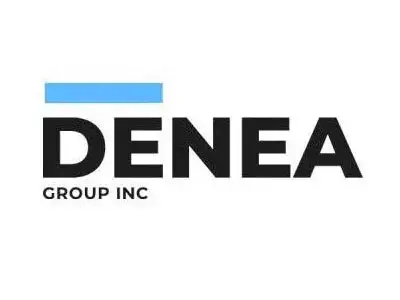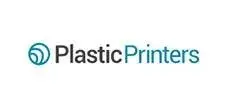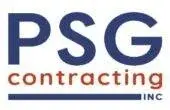Frequently asked questions
_gif.gif)

Trusted HR Consulting Firm, Minneapolis, MN
Your Business Is Growing — Your HR Should Grow With It.
HR Business Partners is a leading HR consulting firm in Minneapolis, providing fractional HR, recruiting, and compliance support for small to mid-sized businesses.
We deliver hands-on, strategic HR solutions — flat monthly fee, no surprises, and full-service results that help you scale confidently.


Part-time HR dept . . Full-time results. ™

“Leadership is about making others better as a result of your presence and making sure that impact lasts in your absence.”
Sheryl Sandberg

HR CONSULTING SERVICES SINCE 2003
For over two decades, HR Business Partners has supported growing companies across Minnesota with expert HR consulting, compliance, and recruitment solutions.
From employee handbooks and performance systems to leadership development and hiring, our experienced HR consultants help you build a stronger, more resilient organization.
We’re your outsourced HR department—professional, personal, and committed to your long-term success.

CUSTOM HR SOLUTIONS
We understand that every business is unique.
That's why we offer customized HR solutions to fit your specific goals, company culture, and budget.
Whether you need help with recruitment, employee handbooks, performance management systems, or compliance training, we create personalized strategies that align with your business objectives.

AFFORDABLE & SCALABLE
Our flat monthly fee offers customized HR solutions that scale with your business.
Our flexible pricing model ensures you only pay for the services you need, while having the option to expand as your requirements evolve.
From startup to enterprise, HR Business Partners adapts to your needs and allows you to focus on growth.

STRATEGIC HR PLANNING
HR Business Partners can provide HR support on an as-needed basis or serve as a cost-effective monthly retainer to monitor your policies and procedures.
Our team stays up-to-date on the evolving HR landscape, ensuring we're ready when you need us.
The choice is yours.
OUR CLIENTS
They got HRBP
.png)
What Our Clients Say About Us

.png)
.png)

“Hard to believe, but a small business needs everything a Fortune 500 company has but on a much smaller budget, am I right? Working with Karen and HR Business Partners, my company has that corporate HR department! And I now can focus on growing and improving the elements of the business we get paid to perform! Thank you, Karen!!!”
PSG Contracting
Kim S.
.png)
.png)

Our overall experience was exceptional. Karen displayed a high level of professionalism and expertise. She was attentive to our needs and questions, providing clear and timely responses throughout her time with us. I would highly recommend her services to others.
RK Wolfgang, Inc.
Ashley B.
.png)
.png)

I have worked with the owner of HR Business partners for over 20 years. She is extremely knowledgeable in all areas of HR, she is very responsive, professional, she communicates very well with management and with employees, and she is easy to work with. I give her my strongest endorsement.
President and CEO Vidatronic
Moises R.
FAQ's
The HR department is responsible for managing the human resources of a company. Its functions include recruitment, employee benefits management, company policy development, employee training, occupational health and safety compliance, employee relations, conflict management and resolution, performance management, succession planning, and career development. HR professionals play an important role in cultivating a positive work culture and ensuring that the company complies with applicable employment laws and standards. Ultimately, the HR department works to maximize the potential of the company’s workforce and contribute to its success by managing its most important asset — its people.
Small businesses can effectively manage their human resources by establishing clear policies and procedures, implementing employee development and training plans, and conducting regular performance reviews. Other strategies include offering competitive compensation and benefits packages, promoting a positive work culture, and providing a safe and healthy work environment. Regular communication between managers and employees can also help to address issues early on and prevent potential problems from escalating. Furthermore, seeking outside guidance, such as consulting with HR professionals or outsourcing HR functions, can also help small businesses effectively manage their human resources while focusing on other core business operations.
Small businesses often face several HR challenges, including recruiting and retaining employees, managing employee benefits and compensation, developing and implementing company policies, scheduling and workload management, and ensuring compliance with all relevant employment laws and regulations. Small businesses may also face challenges in training and developing a skilled workforce, particularly when resources are limited. Additional challenges may include resolving employee conflicts, addressing workplace safety concerns and managing employee performance. These challenges can be particularly complex for small businesses with limited resources, making it essential to prioritize HR initiatives and implement effective strategies for managing human resources within the organization.
Technology can be used to streamline HR processes for small businesses in several ways. For example, HR software and applicant tracking systems can automate the recruitment process by sorting resumes, scheduling interviews and even conducting initial screening interviews via chatbots. Time and attendance tracking software can streamline leave approvals and payroll management. Cloud-based HR software can also be used for performance management and employee training. Technology can significantly reduce the administrative burden on HR personnel and better align HR operations with overall organizational objectives. Taken together, these tools can help small businesses improve their human resources management practices while at the same time reducing the time and resources required to do so.
Some best practices for recruiting and hiring employees for a small business include defining the job and required qualifications, creating a compelling job ad, using multiple recruiting channels, conducting a thorough screening process, making a timely hiring decision, ensuring legal compliance, and developing an effective orientation program. By following these best practices, small businesses can attract, recruit and hire top talent that will help the company grow and succeed. It is important to ensure a good fit between the new hire and the organization from the start, and to provide necessary orientation, training and development opportunities to help employees thrive and contribute to the success of the company.
Small businesses can create an effective onboarding process for new employees by developing a clear plan that outlines expectations and desired outcomes. The plan should include a comprehensive review of company policies and procedures, benefits, administrative formalities, and necessary documentation. The use of visual aids, videos and interactive tools can help reinforce the information presented. Assigning mentors, conducting orientation events and scheduling follow-ups will ensure the new employee has all tools to establish a successful relationship with the company. Establishing ongoing training and development plans will benefit the employees in their role and overall success of the company. A successful onboarding process will kickstart employee satisfaction and motivation levels, improving retention and contribution to the company.
Small businesses can manage employee performance and development by aligning employee goals with the company’s strategies, conducting frequent evaluations, providing constructive feedback, offering career development and training, promoting a positive work culture, developing incentive programs, as well as checking in frequently to ensure employee needs are being met. These strategies help improve employee performance, productivity, and satisfaction, while also ensuring that the business has a skilled workforce aligned with its goals. Regular communication and feedback can help employees better understand their responsibilities and how their work contributes to the company’s success. Small businesses can create a continuous development culture for their employees based on these strategies, boosting overall team and organizational performance.
Small businesses can handle employee terminations effectively by having a clear and documented termination policy in place, and conducting the termination process in a respectful, confidential manner that adheres to any legal requirements. Prior preparation could include reviewing related agreements, checking on documentation related to performance and previous warnings. Employers should allow the employee to have a platform to express themselves and explain the reasons behind the termination. Communication should be clear and professional, while providing relevant information necessary to the employee. Small business owners should keep record of the proceedings to ensure compliance with employment laws and to support the reasons for termination if legally challenged. Finally, following through with appropriate notifications to all stakeholders involved and ensure remaining employees receive required guidance and support.































